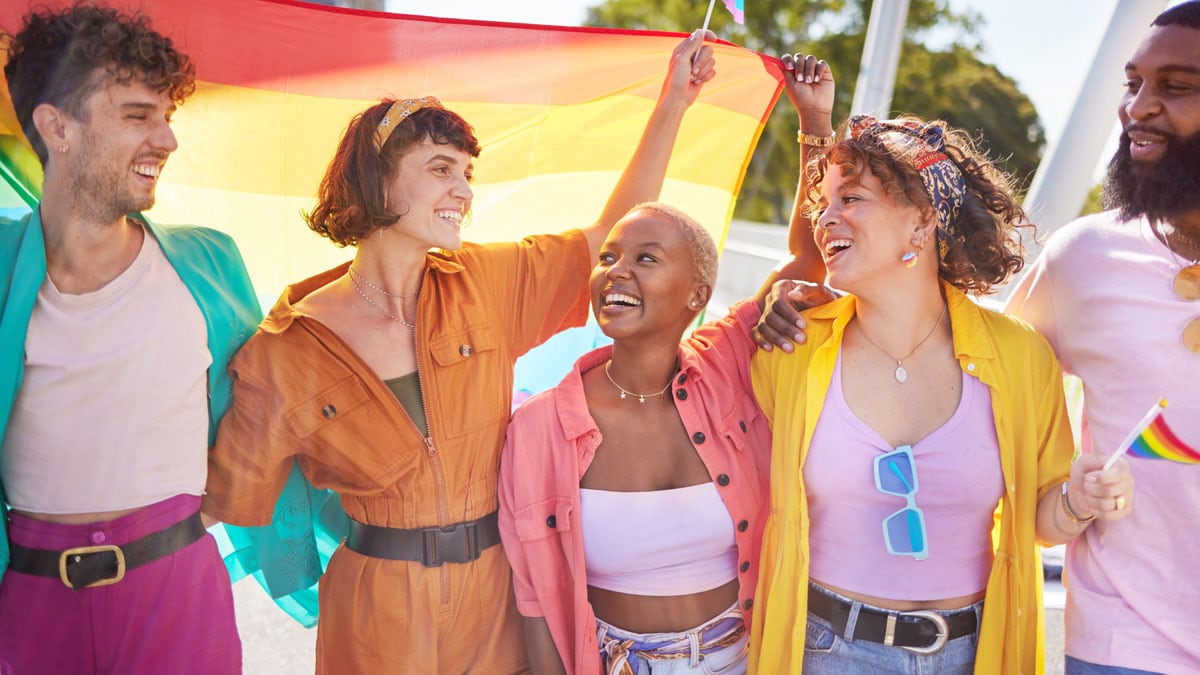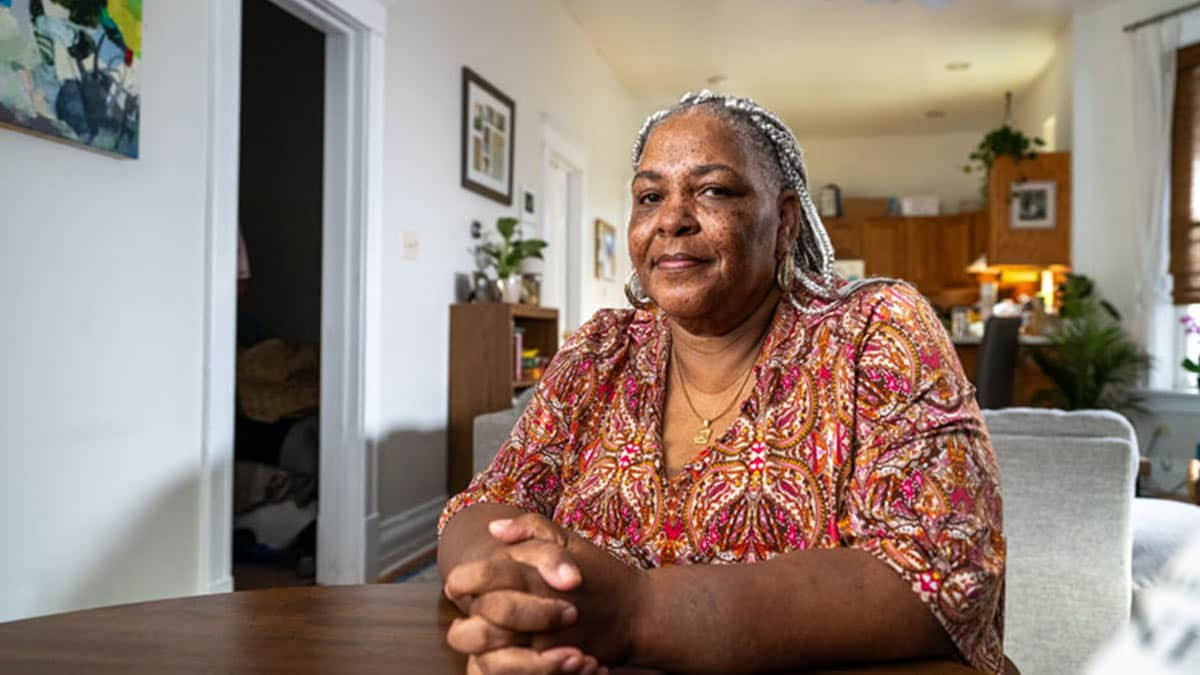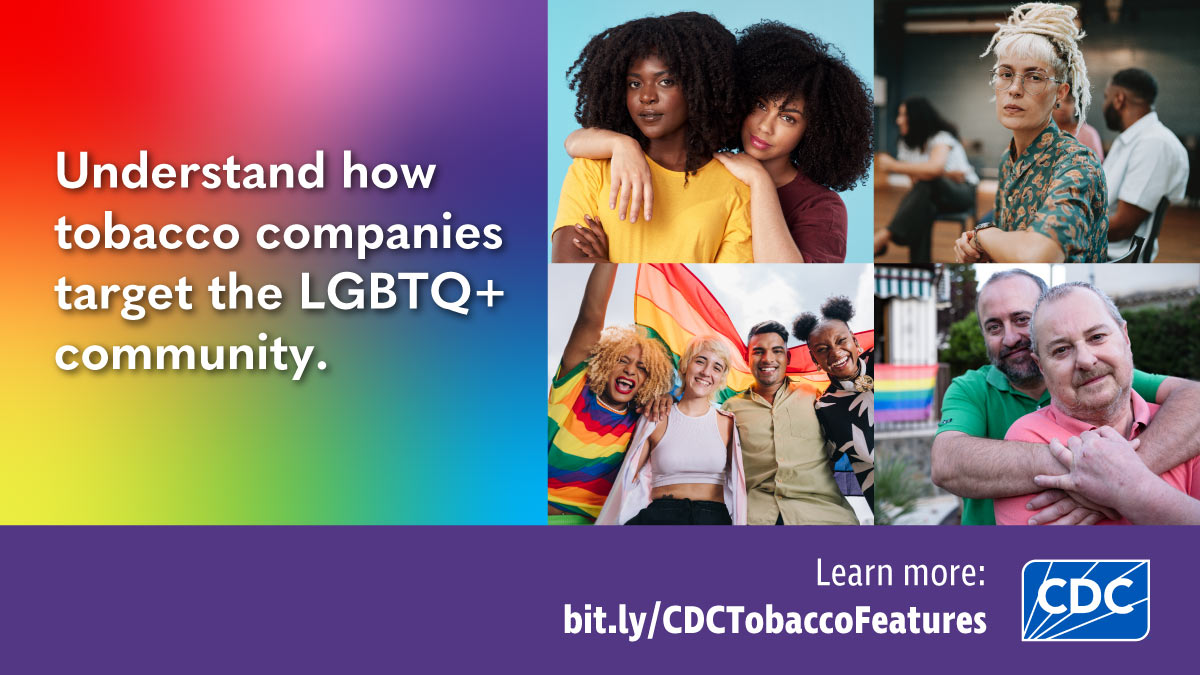At a glance
This Pride Month, consider taking the step to quit smoking and living a smokefree life.

Pride Month
Lesbian, Gay, Bisexual, Transgender, and Queer (LGBTQ) Pride Month is a time to recognize, celebrate, and commemorate LGBTQ+ people. Pride Month is also a time to focus on improving the health of LGBTQ+ people—like staying tobacco-free.
Use of cigarettes and other commercial tobacco products is higher among some population groups and communities, including lesbian, gay, and bisexual (LGB) people, compared to heterosexual/straight people. There are many reasons for this, including stress related to prejudice, stigma, and aggressive marketing by tobacco companies that sponsor events, promotions, giveaways, and advertisements targeting LGBTQ+ communities. Though some people may smoke or vape to try to cope with stress, nicotine addiction from using these products can actually be a source of stress.
Quitting commercial tobacco product use, like smoking, can improve physical health. This includes improving cardiovascular health and reducing the risk of cancer, among many other health benefits. Quitting can also lower levels of anxiety, depression, and stress. It can improve mood and quality of life.
Staying Tobacco-free
Angie P.'s Story

Angie P. is a member of the LGBTQ+ community and started smoking as a teenager. She started smoking menthol cigarettes at age 15 because she wanted to mimic her mother's smoking.
Angie never felt like she belonged in her family or her community. She knew she liked girls but thought being gay would be difficult for her family to accept. In high school, she started hanging out with friends who smoked cigarettes and drank alcohol. Angie realized that she would smoke every time she felt hurt or angry. She smoked up to two packs a day as a teenager.
As an adult, Angie moved to Las Vegas to launch a professional singing career. She struggled with substance use and lived on the street for two years. Angie reached out for professional help and was able to end her alcohol and substance use. But the one addiction she continued to struggle with was smoking.
At age 41, Angie overheard a group of people talking about a program that used an FDA-approved quit-smoking medicine. Angie immediately signed up for the program. Within a week of joining, Angie quit smoking for good.
Today, Angie shares her story to help others struggling with substance use and tobacco addiction. Angie is also aware of the tobacco industry's aggressive advertising of cigarettes, especially menthol cigarettes, particularly to reach LGBTQ+ communities and communities of color. As someone who is gay and African American, Angie feels the tobacco companies took advantage of her to profit from a harmful product.
"My hope is to help other people, especially LGBTQ+ people, understand what the tobacco companies are trying to do with their advertising. I'd tell them it's not worth it to smoke," Angie said. "Their lives and their health are worth more."
Quitting Resources
Health equity and health disparities among LGBTQ+ people
Many LBGTQ+ people have experienced harassment, discrimination, and forms of violence related to unfair and unjust practices, policies, and conditions. This is true for other minority groups as well. Experiences of discrimination and stressful social and environmental conditions are associated with commercial tobacco product and other substance use. Use of these products can contribute to poor health outcomes.

LGBTQ+ people can also encounter barriers to successfully quitting tobacco use. For instance, some LGBTQ+ people fear or experience discrimination or disrespect from medical professionals. People who are afraid of discrimination from health professionals are less likely to seek medical care and they may be less likely to use proven treatment options. Fewer LGB adults who smoke report using treatment (medication or counseling) to help them quit smoking, compared to straight adults who smoke. Connecting every person who wants to quit smoking with treatment proven to help them successfully quit is important for improving people's health.
How to quit smoking
This Pride Month, consider taking the step to quit smoking and living a smokefree life. Quitting smoking is one of the most important actions you can take to improve your health. This is true regardless of your age or how long you have been smoking.
Tools to help you quit smoking include:
- Calling a quitline: They provide free coaching—over the phone—to help you quit smoking. When you call 1-800-QUIT-NOW, you can speak confidentially with a highly trained quit coach. Quitlines are available throughout the United States, and coaching help is available in several languages. Some quitlines offer text messaging support.
- Texting The National Texting Portal: The portal connects you (adults 18 years of age and older in the United States) with mobile text message-based support to help you quit smoking.
- Making a quit plan: Build My Quit Plan | Smokefree
- Quit-smoking medicines: Learn About Quit Smoking Medicines
For more help, see Tips For Quitting.
